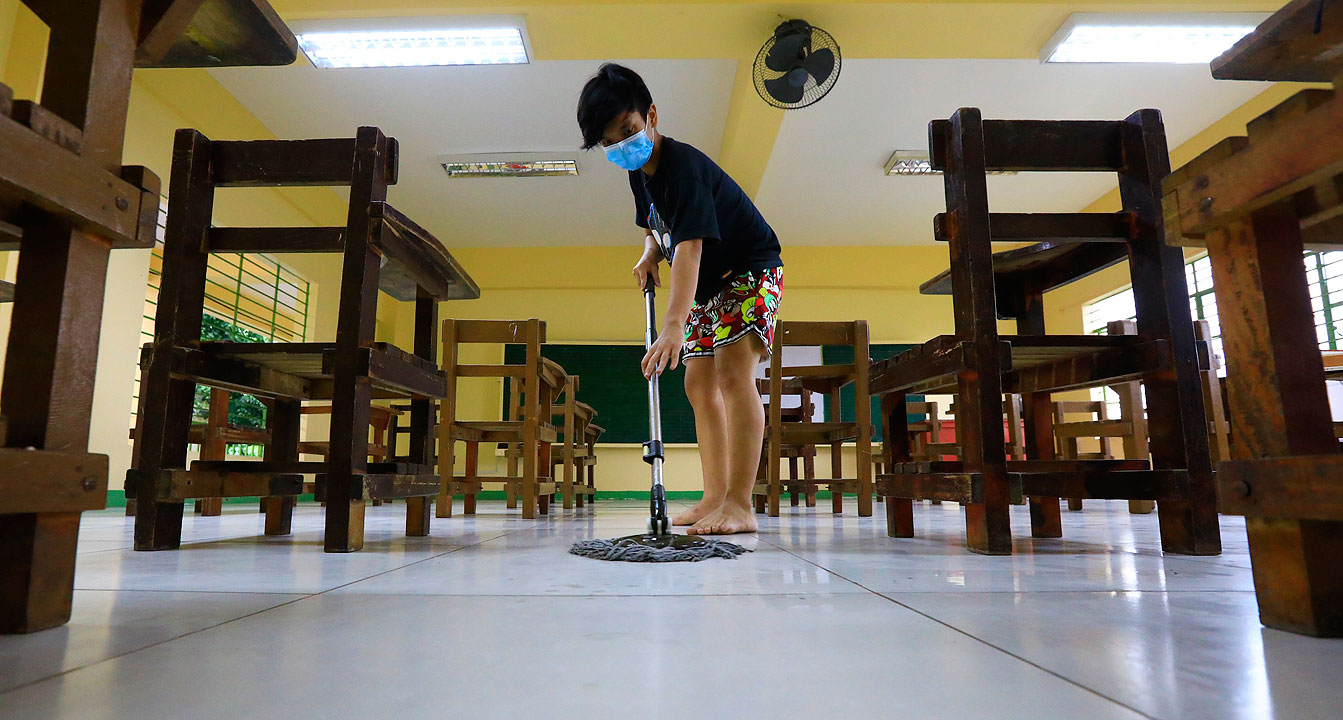Philippines needs at least P100B yearly to close classroom gap

THE PHILIPPINES needs a yearly budget of P100 billion to resolve a classroom shortage by 2030 that threatens its worsening education quality, according to a Department of Education (DepEd) official.
The agency is looking for fund sources outside the national budget, Education Undersecretary Epimaco V. Densing III told reporters on the sidelines of a contract-signing for a P25.3-million grant from Japan on Thursday.
“As of the end of 2022, the shortage of new classrooms was around 165,000, and we’re already looking at a seven-year projection to address this gap by 2030,” he said.
“Based on our projections, we need at least P100 billion a year to be able to zero out the shortage of classrooms all over the country,” he added.
The DepEd has a P15.6-billion budget this year to build 6,421 classrooms.”But with an expected 2% net increment of enrollees, the yearly requirements should be around 13,000,” Mr. Densing said.
If the budget remains at this level in the coming years, “I’m quite sure it will take more than 20 years’’ to close the gap. “The appeal really is for everyone to help us.”
About five million students stand to benefit from closing the classroom backlog, Mr. Densing said.
Areas most in need of more classrooms include highly urbanized cities like Cebu and the National Capital Region, he said. These areas use as many as three class shifts given the lack of classrooms, he added.
Among the four beneficiaries of Japan’s P25.3-million grant was the municipality of Ilog, Negros Occidental, which was given P14.5 million to build a school building for Ilog Elementary School.
This is a two-story classroom facility for at least 240 students, Mr. Densing said.
“These are sources outside of the national budget where we can put up more classrooms, so this is our strategy right now,” he added.
The DepEd is also looking at civil society and business groups to help close the classroom gap.
“We’re also looking at the possibility of tapping loan programs or loan grants from our development partners,” he said.
The Japanese government has also allotted P3.6 million to the Pilipinas Shell Foundation, Inc. for the construction of a food processing training center in Bombon, Camarines Sur.
The project will ensure capacity building for farmers.
“This project will help enhance the livelihood skills of 1,200 farmer-households or over 4,000 individuals from 10 municipalities in the province of Camarines Sur — one of the poorest provinces in the Philippines,” Shell Executive Director Sebastian C. Quiniones, Jr. said in a speech at the event.
“Together, we will work on supporting our stakeholders gain skills in agri-business, food processing and sustainable farming, ultimately leading them towards becoming successful and self-sufficient members of society,” he added.
Meanwhile, P6.17 million will be given to the Golden Wheel Awards Foundation, Inc. so it can buy a water purification system in the village of Mabato in Rosario, Batangas, which will benefit both schools and homes there.
The remaining P971,429 will be given to the Sarnelli Center for Street Children Foundation, Inc. so it can buy vehicles for a street children center in Lipa City, Batangas.
“Japan continues to be the Philippines’ advocate in achieving sustainable and inclusive growth,” Japanese Ambassador to the Philippines Koshikawa Kazuhiko said in a speech. “We have forged strong ties as we actively work together to uplift the lives of Filipinos through our Official Development Assistance projects, particularly the Grant Assistance for Grass-Roots Human Security projects.”
Japan has completed 553 similar projects since 1989. — Alyssa Nicole O. Tan



